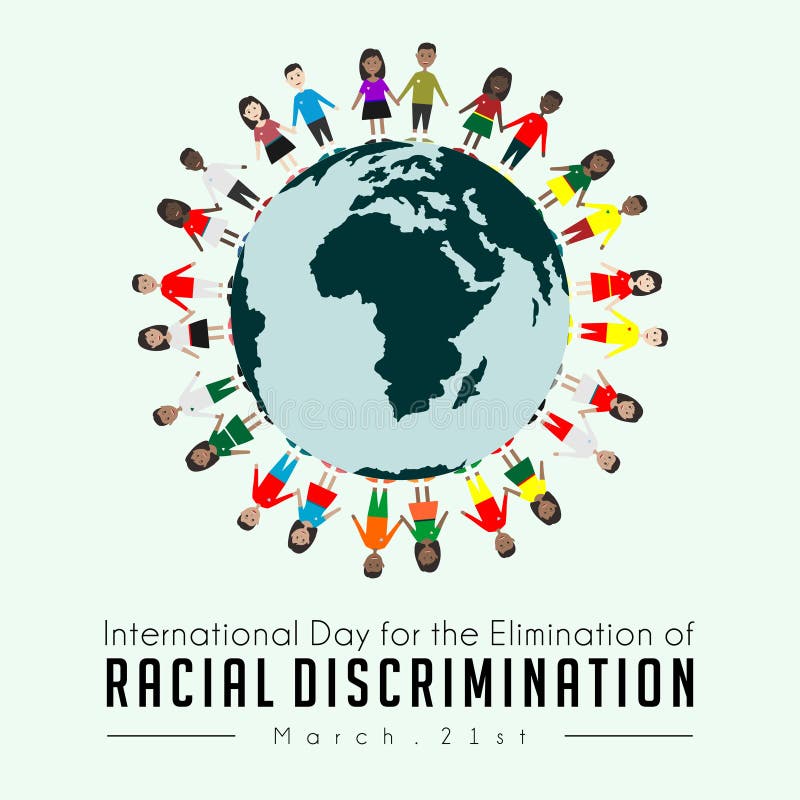The International Day for the Elimination of Racial Discrimination, observed annually on March 21, serves as a poignant reminder of humanity’s collective responsibility to eradicate racism and foster inclusivity. The Bahá’í teachings, grounded in principles of unity, equity, and justice, offer compelling insights into why this day is of paramount importance. As expressed in the writings of Bahá’u’lláh, the founder of the Bahá’í Faith, the essence of human dignity is rooted in the recognition of our shared humanity, overwhelming the prejudices that divide us. This article explores the significance of this observance through the prism of Bahá’í teachings, addressing both the societal implications and the deeper philosophical undercurrents that inform the Bahá’í approach to racial equity.
To comprehend the vital importance of this day, one must first reflect on the persistent presence of racial discrimination in societies around the globe. Despite legislative advancements and social movements aimed at dismantling systemic racism, negative stereotypes, biases, and entrenched inequalities continue to permeate our interactions and institutions. The Bahá’í teachings offer a clarion call for the urgent need to recognize these issues, urging humanity to transcend superficial distinctions in favor of a more profound understanding of oneness.
At the heart of Bahá’í philosophy lies the concept of the oneness of humanity. This principle posits that all human beings, regardless of their race, ethnicity, or background, stem from a common origin. Bahá’u’lláh emphasized that the diversity found across the globe should be celebrated rather than feared. This celebration of diversity is encapsulated in the Bahá’í belief that God has created the various races and cultures to enrich the human experience, positioning these differences not as barriers but as opportunities for greater understanding and dialogue. The observance of the International Day for the Elimination of Racial Discrimination thus serves as a transformative reminder of this intrinsic oneness, prompting reflection on how our actions can nurture or dismantle racial divides.
Furthermore, the principle of justice is a cornerstone of the Bahá’í Faith. Justice goes beyond mere legal equality; it embodies the moral imperative to strive for fairness and equity in all aspects of life. The observance of this international day aligns with the call for justice, urging individuals and communities to confront and challenge the biases that permeate societal structures. The Bahá’í teachings advocate for a systemic approach to justice, one that addresses not only individual prejudices but also the institutional forces that perpetuate racial discrimination. This approach encourages active participation in social reform, reinforcing the idea that each individual has a role to play in cultivating a just society.
The teachings also highlight the role of education in eradicating racism, a theme that resonates profoundly with the goals of the International Day for the Elimination of Racial Discrimination. The Bahá’í perspective emphasizes that ignorance is a significant driver of prejudice. Therefore, the systematic dismantling of stereotypes and biases can be achieved through comprehensive education. Commitment to educating future generations about the value of diversity and the destructive nature of discrimination is essential. In celebrating this day, we are reminded of the importance of fostering educational initiatives that instill appreciation for human diversity, thereby counteracting the ignorance that breeds hatred.
Moreover, the concept of collective action is essential within the Bahá’í framework. Achieving the goal of eliminating racial discrimination requires a concerted effort by individuals and communities worldwide. The International Day is not merely a commemoration; it is a call to arms for collaborative endeavors that engage various stakeholders, including governments, civil society, and faith-based organizations. Bahá’í literature stresses the significance of alliances across race, class, and culture, reinforcing the idea that solidarity is fundamental to creating a societal milieu where diversity thrives and discrimination wanes.
Additionally, the relationship between the elimination of racial discrimination and world peace cannot be overlooked. The Bahá’í teachings assert that peace is unattainable in the presence of racial discord. Sustainable peace hinges on the equitable treatment of all individuals, regardless of their racial identity. The observance of the International Day reminds us that genuine peace must be rooted in justice. By fostering dialogue and embracing diversity, we create fertile ground for lasting harmony. This connection emphasizes the necessity of working toward a world where racial discrimination is eliminated, not only for the sake of justice but also for the overarching goal of global peace.
Lastly, the celebration of the International Day for the Elimination of Racial Discrimination fosters a reflective space for individuals to engage in introspection. The Bahá’í teachings encourage individuals to confront their own biases and preconceived notions, promoting a culture of accountability and growth. Individuals are urged to examine their interactions and actively seek ways to contribute positively to their communities. This process of self-examination is essential for personal and societal transformation, as it reinforces the notion that each person’s journey towards understanding and embracing diversity can contribute to the larger objective of eliminating racial discrimination.
In conclusion, the International Day for the Elimination of Racial Discrimination is profoundly meaningful within the context of Bahá’í teachings. It serves as a pivotal reminder of our collective responsibility to confront racial inequities, fostering a society where every individual is valued and embraced. By embodying the principles of oneness, justice, education, collective action, peace, and introspection, the Bahá’í community advocates for a world radically transformed by love, unity, and acceptance. Therefore, the observance of this day is not simply a matter of commemorating diversity; it is about taking concrete steps towards creating a world where all individuals stand free from the chains of racial discrimination, enriched by the very differences that make humanity vibrant and dynamic.
